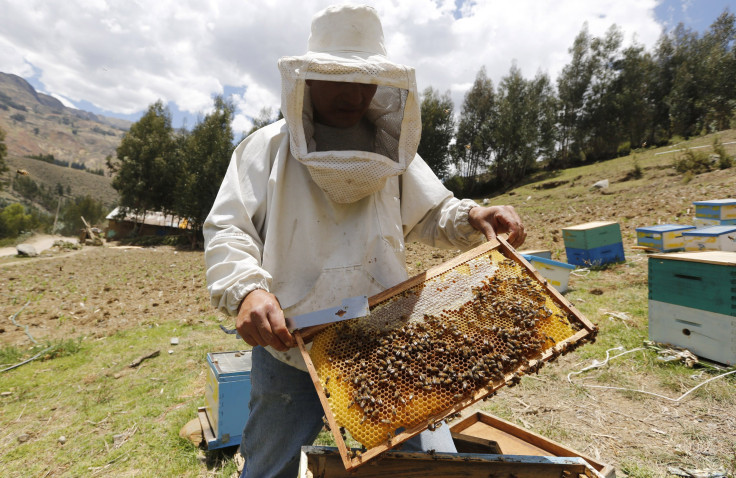Bee Colony Loss Report: One In Four Colonies Lost Over Last Year

America’s bees died at an alarming rate this winter, according to a report released on Wednesday that surveyed more than 6,100 beekeepers across the country. The preliminary report by the Bee Informed Partnership stokes fears that one of the most important links in the agricultural chain will be severed, driving up the prices of produce grown in the United States.
Nearly a quarter of all colonies managed in the U.S. were lost over the 2014-2015 winter, and more than 4,000 beekeepers reported colony losses greater than 18.7 percent, which was considered normal and acceptable for this winter. Winter loss is expected, but there’s been an increasingly worrying trend of large-scale beekeepers losing large percentages of their colonies over the summer as well. In total, beekeepers lost 42.1 percent of their colonies from April 2014 to April 2015, the second-highest annual loss ever recorded, slightly less than the record 45 percent lost between 2012-2013.
Losses were highest in Oklahoma, Indiana and Iowa, where beekeepers lost more than 61 percent of their hives. Five other states -- Maine, Pennsylvania, Maryland, Delaware and Wisconsin -- reported losses higher than 60 percent. Hawaiian beekeepers reported the lowest levels of colony loss, but the lowest percentage loss in the continental U.S. was 25.2 percent, in Oregon.
The report did not specify the circumstances surrounding the losses, which are attributed to a number of factors, including bee interaction with certain pesticides used on crops and the invasion of pests like mites. It did not specify what percentage of losses was attributable to Colony Collapse Disorder, a bizarre phenomenon in which worker bees abandon their queen in a healthy hive to never return. Dick Rogers, chief beekeeper for the pesticide giant Bayer, said the losses weren’t out of the ordinary and that there are even more colonies this year than last year, according to the Associated Press.
Bees pollinated $15 billion worth of crops in 2011, according to the Natural Resources Defense Council. Beekeepers, especially large-scale beekeepers, charge farmers for the use of their bees to pollinate their crops each year. Bee shortages mean beekeepers will charge farmers more to use their bees, which will be passed onto the consumer.
© Copyright IBTimes 2024. All rights reserved.






















